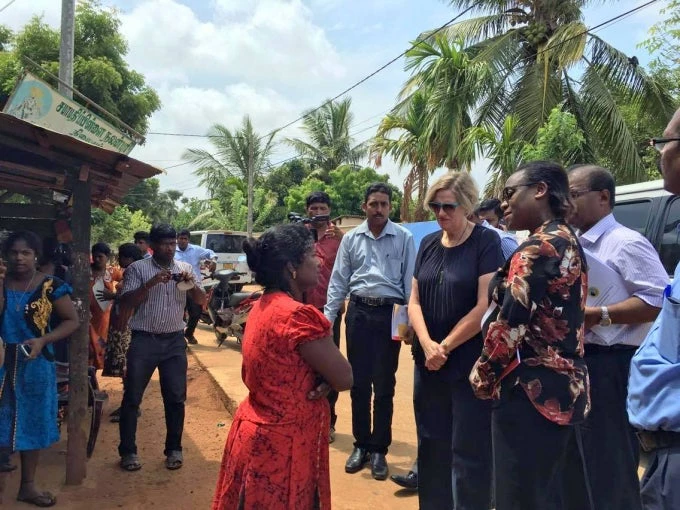
Sri Lanka amazes me in many ways, with its smiling faces among a rich tapestry of cultures, diversity, and natural wonders. On this fourth visit and first time in the Northern Province, I once again found a resilient and industrious people eager to build their lives and advance the country together.
As Sri Lanka recovers from an almost three-decade long conflict, much progress has been made. I am proud that the World Bank Group has been a close and trusted partner with the country to help restore lives, livelihoods, and unlocking the potential of all of its people, inclusive of men and women, diverse geographic locations, as well as different ethnic and religious backgrounds.
But much more remains to be done to further reduce poverty and increase prosperity for all Sri Lankans.
In addition to innovative, well-designed and implemented projects, we are improving what we know about Sri Lanka’s development journey. We recently completed a diagnostic study that identified five priority areas for the country to focus on and address. The challenges identified were for Sri Lanka to improve its budget and tax position, create more jobs for the bottom 40 percent of the population, expand opportunities for women and minorities to take part in society, and improving governance. A key issue identified was the so-called “sustainability challenge”: making sure past grievances did not reignite conflict, addressing the economic problems caused by an aging population, and anticipating the risks posed by climate change.
We followed up by identifying potential reforms and areas of collaboration in a partnership strategy to help address these challenges through a consultative process with the public and policy makers. It sets out a program of research, assistance, and investments by the World Bank and its partners to support the country toward realizing its goals of greater competitiveness, social inclusion, and sustainability.
The program of partnership is grouped into three priorities:
- Improving fiscal stability and competitiveness through improving public financial management and modernization of its systems, attracting greater foreign investment, and fostering private sector growth.
- Promoting inclusion and opportunities for all through better distributing the benefits of the country’s growth to all citizens, particularly the most vulnerable and marginalized.
- Boosting green growth, improving environmental management, while mitigating natural disasters and the effects of climate change. This includes urban development that minimizes environmental impact, strengthening climate change and natural disaster resilience, developing renewable energy sources and better managing its natural resources.
Building on the World Bank’s six decades of partnership with Sri Lanka that dates back to 1953, we commit to working ever more closely together on development projects, knowledge, and assistance along with other partners. We all want to help Sri Lanka realize its goals of reducing poverty and increasing prosperity for all and to fulfill its promise of an inclusive and prosperous country.


Join the Conversation